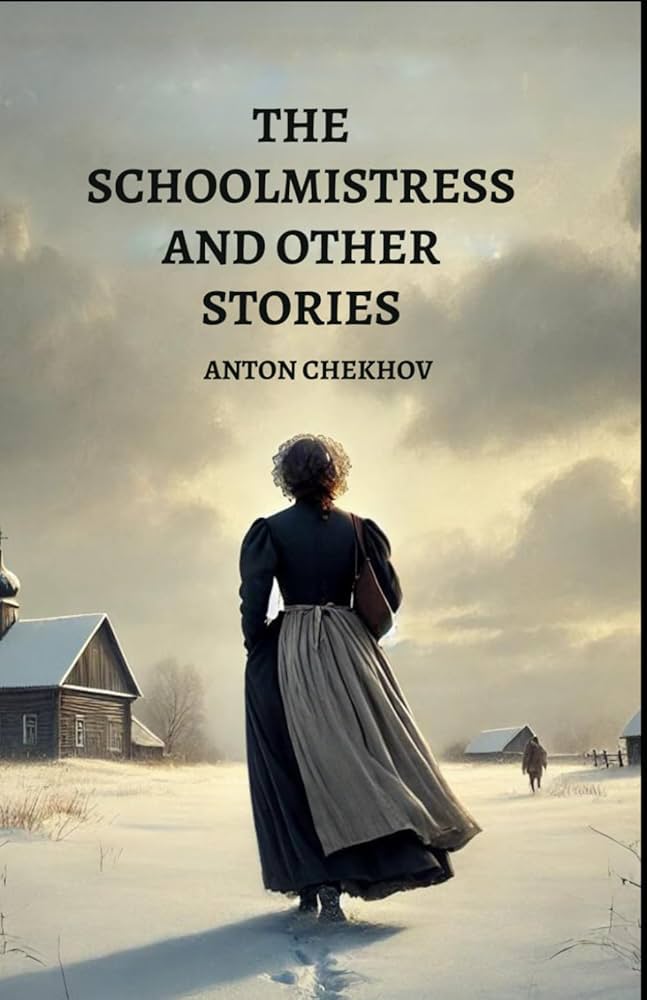SORROW
bySorrow weighs heavily on the journey of Grigory Petrov, a man long dismissed for his foolish ways but remembered for his skilled hands. On a bitter, snow-filled night, he guides a rickety sleigh through a storm, his wife Matryona slumped silently beside him. The wind cuts through layers of clothing, yet Grigory speaks to her with a mix of forced optimism and quiet desperation. His words fall into the howling white void, unanswered. He tells her the doctor will surely help. But under his breath, there’s fear—not just of the storm, but of what silence might already mean. Even as the sleigh creaks and groans across the ice, he is burdened not by the weight of snow, but by the weight of guilt that’s begun to settle inside him like frost creeping across a windowpane.
As the sleigh lumbers onward, Grigory recalls years squandered in drink and aimless living, lost in taverns and forgettable company. Matryona had been a quiet anchor in his otherwise careless life, always present but rarely praised. Now, as he watches her motionless form beside him, a flood of recognition crashes over him. Her kindness, her strength, her enduring patience—all come back, not as memories, but as reproaches. He realizes how little he gave back. His eyes sting, but it’s not the snow. It’s the sorrow of a man who has only just learned the depth of love too late. Each mile forward is now not a race toward rescue, but a slow pilgrimage of regret.
By the time he reaches the outskirts of help, Matryona is gone. Her face, serene in death, mirrors the stillness that surrounds them. There is no doctor to save her now, only a husband who must navigate the rituals of goodbye. Grigory doesn’t cry. Instead, he grows still, the magnitude of his loss anchoring him more than the sleigh ever could. For the first time, he sees himself not as a man wronged by life, but as a man who let life slip by unnoticed. He feels ashamed—not just for his past, but for having woken up only when everything was already over.
With the storm beginning to clear and the road behind him long buried, Grigory sits motionless beside his wife’s lifeless body. He closes his eyes not to rest, but to escape the cold clarity that has overtaken his thoughts. In his mind, he sees a different life—a smaller house, fewer bottles, more evenings beside the fire with Matryona humming to herself. These imagined scenes press against the present like warm hands against frostbitten skin. But no warmth returns. The sleigh is still, the sky pale. Grigory wonders if sorrow always comes like this—too sudden, too late, too quiet.
There’s a tragic truth that emerges as the story ends: people do not always see the value of what they have until it’s taken away. Grigory’s awakening is sincere, but it comes when nothing can be changed. The narrative does not grant him a dramatic redemption, only the bitter awareness of what he has lost. And this is where the story holds its power—not in offering comfort, but in confronting the reader with the brutal honesty of regret. In grief, Grigory is finally humanized. But in becoming more human, he finds himself utterly alone.
The harsh lesson of Sorrow is one many readers may quietly recognize. It is a warning told not through sermons, but through snow and silence and the unspoken weight of memory. Grigory’s journey, though it begins as a bid for healing, becomes a portrait of the irreversible cost of neglect. What lingers in the end is not just the stillness of death, but the deafening echo of a life that could have been different if love had been recognized while there was still time.

